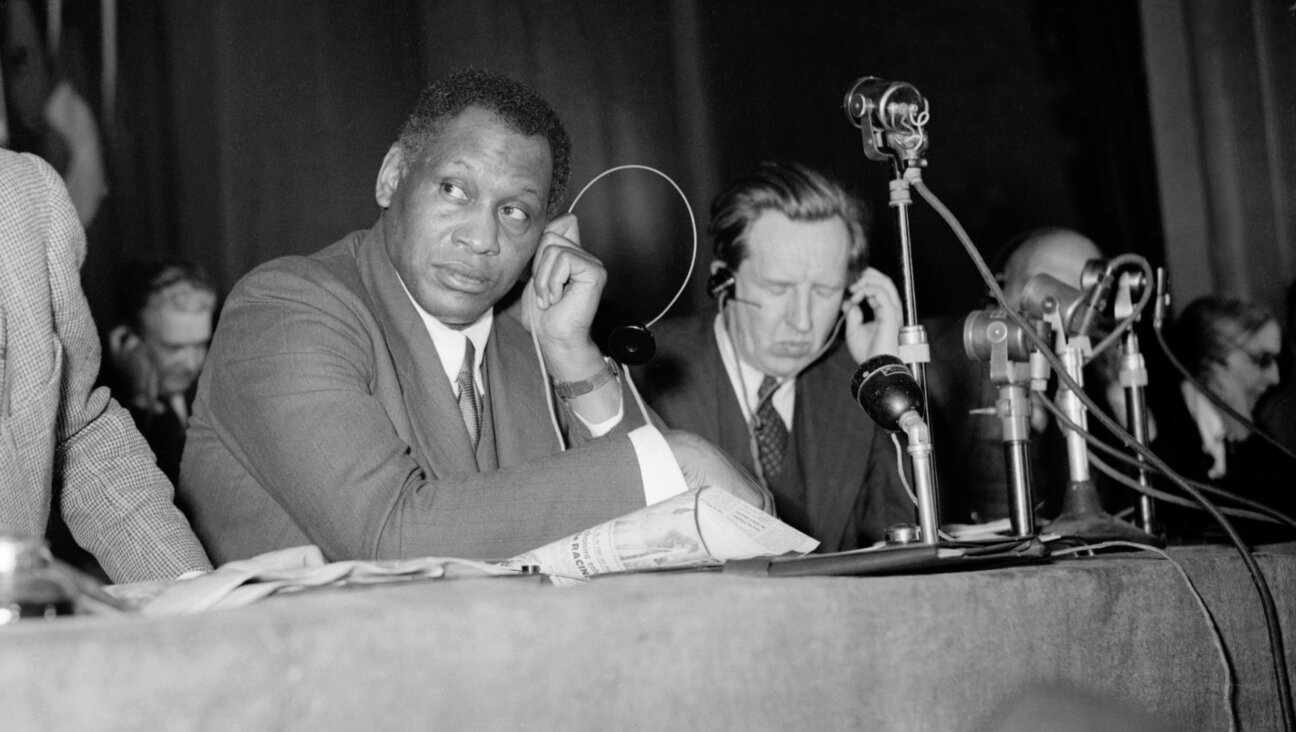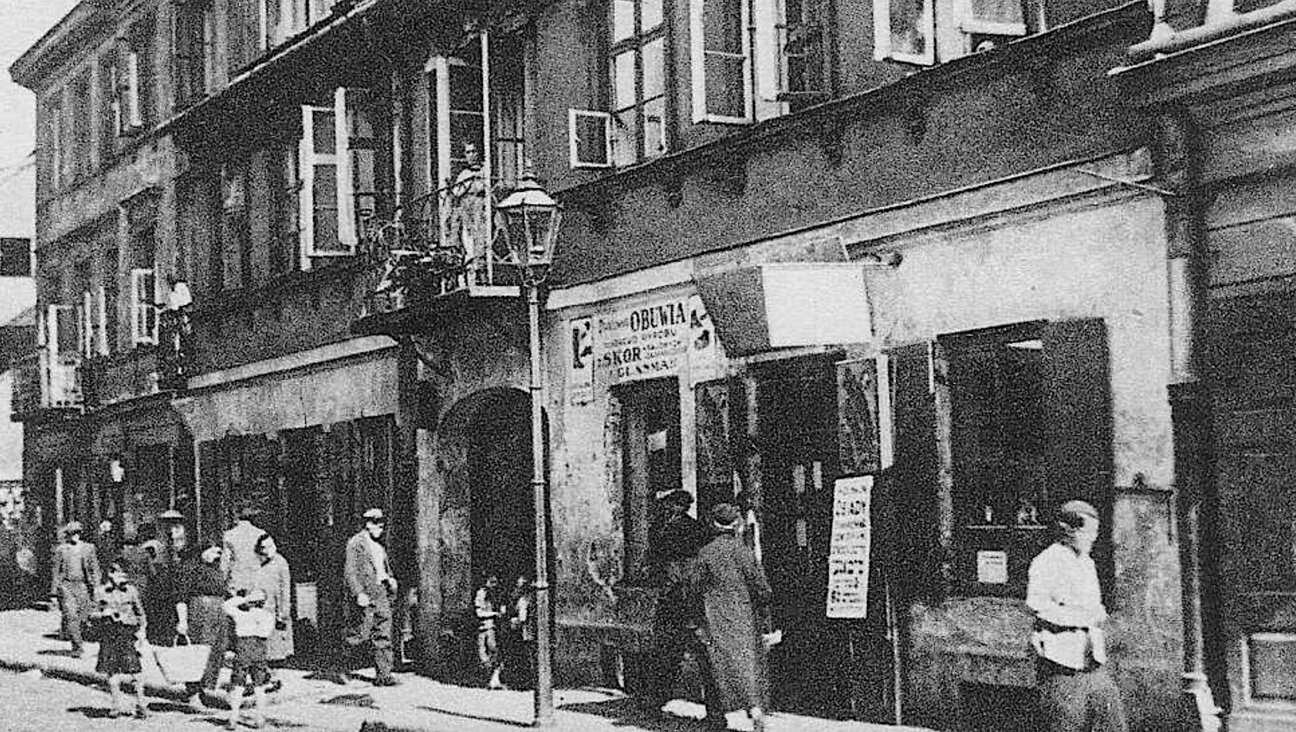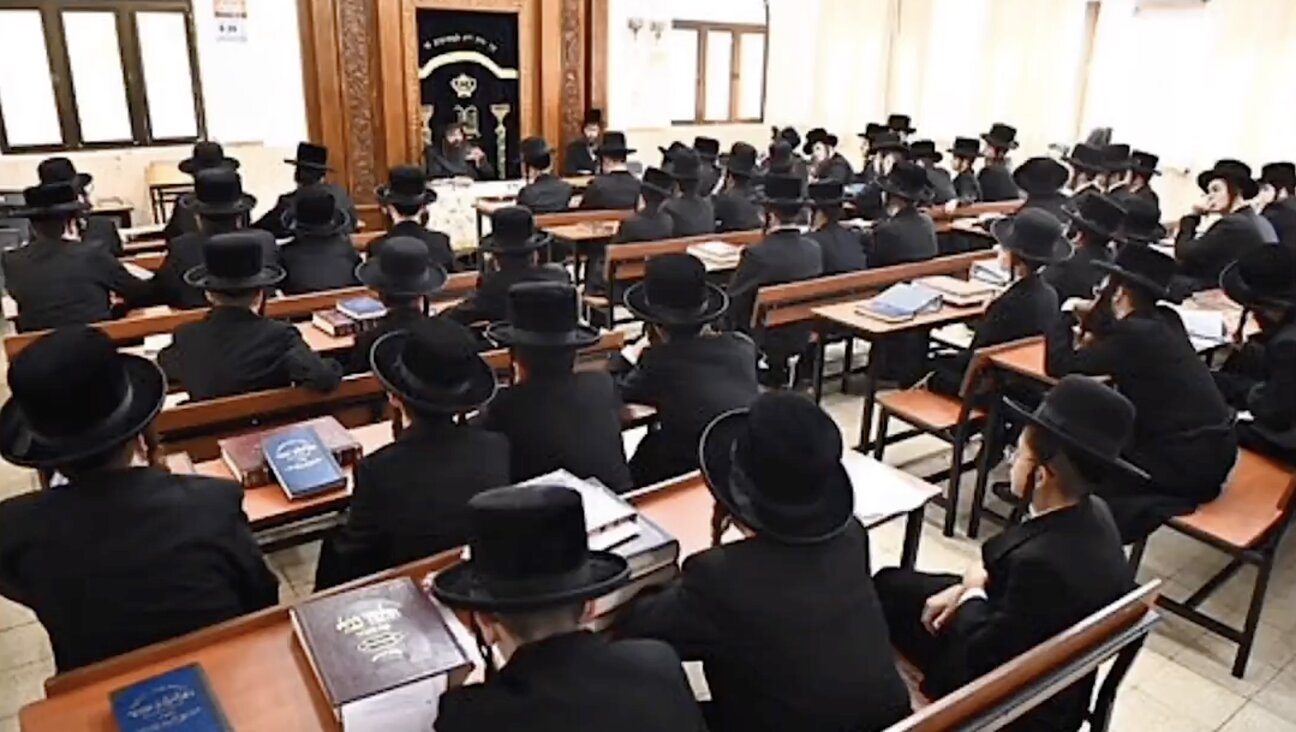They’re your cool friend’s favorite funk band. Their frontman released a klezmer album
Yiddishe Pirat, the project from Vulfpeck’s Jack Stratton, revives klezmer music for a younger, funkier audience
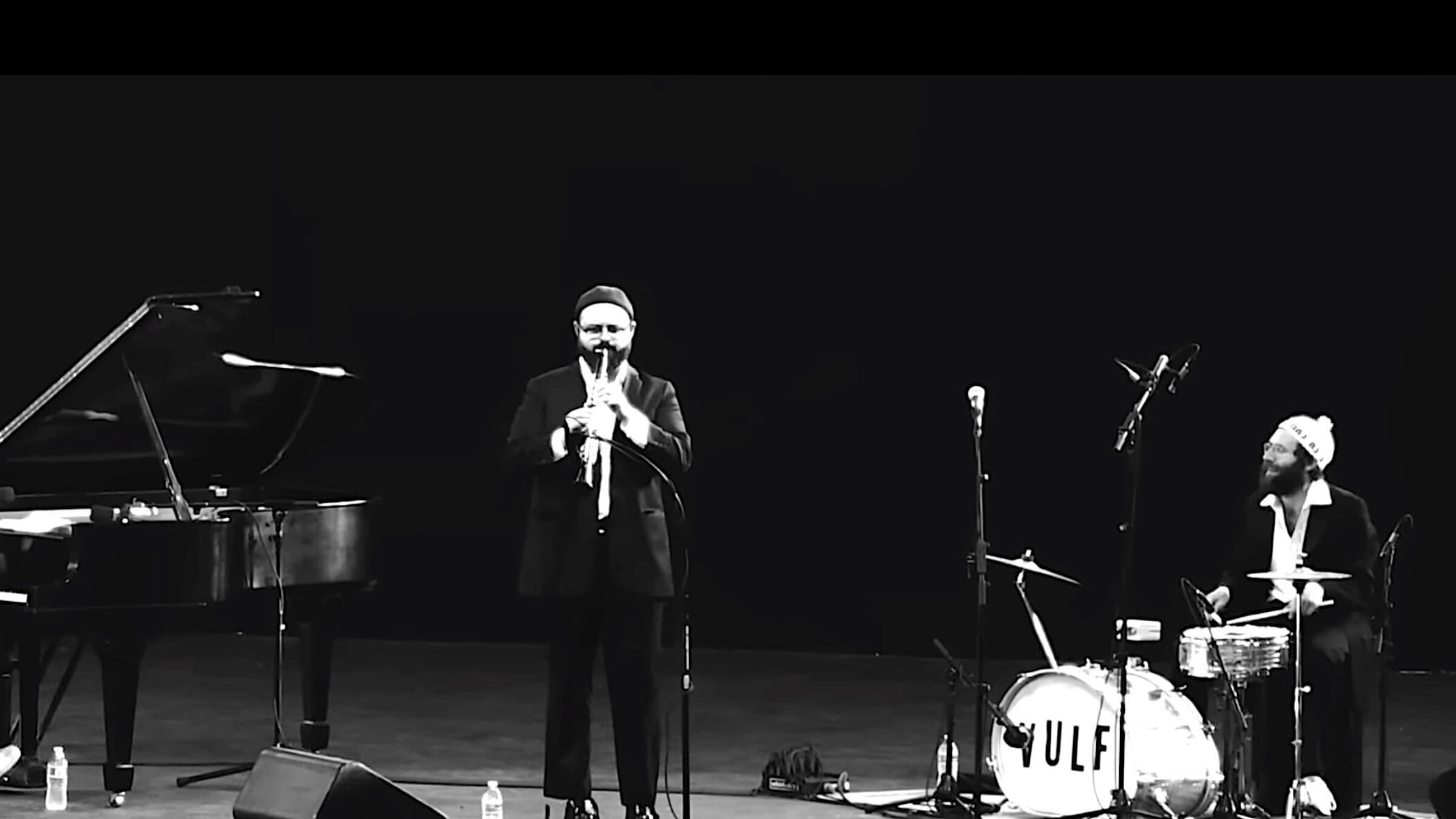
Photo by Vulfpeck
In 2019, the Michigan-based indie funk band Vulfpeck sold out Madison Square Garden for a one-night-only show. I was in attendance in nosebleed seats, and as the show began, klezmer clarinetist Michael Winograd took the stage to lull the raucous crowd with a solo evocative of the shtetl called “The Sweet Science,” as Vulfpeck’s frontman Jack Stratton literally crawled onto the largest stage the band had ever taken.
Now at this point in my life, I was not yet the engagement editor at one of the most-storied Yiddish newspapers in United States history. I was about a year and a half out of college, emotionally distanced from both my cultural and religious Judaism, and excited to see the low-volume funk band with a cult following that I had tried to emulate in my own basement rock. I didn’t understand it at the time, but Winograd’s serenade revealed to me a Yiddishkeit infused in the band’s catalog that I could only see in hindsight.
In a 2016 Bandcamp blog post, writer Allegra Rosenberg wrote about Vulfpeck’s Jewish roots, and how the tummler (comic entertainer) persona that Stratton adopts on stage straddles the band’s music in an Ashkenazi-Jewish space between past and present. Jack Stratton is the son of Bert Stratton, who plays clarinet, harmonica and saxophone for the Cleveland-based klezmer group Yiddishe Cup.
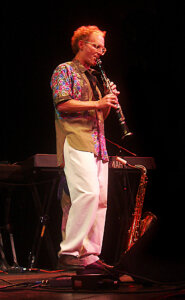
It makes sense that Stratton, who came of age playing Jewish music with his dad, would release a music video under his solo label/alter ego “Vulfmon” conducting Winograd in the latter’s arrangement of Johann Sebastian Bach’s “Contrapunctus I.” And it makes even more sense that he’d wear a Na Nach Kippah while conducting the song whose YouTube caption quotes Rebbe Nachman of Breslov: “The most direct means for attaching ourselves to God from this material world is through music and song.” These hints of Yiddishkeit were hiding from me in plain sight.
From funk to full-blown klezmer
Last year, Stratton returned home to Cleveland Heights, Ohio, to join Winograd and Socalled, the stage name of Canadian rapper, pianist and accordion player Josh Dolgin in forming a band called Yiddishe Pirat (Yiddish Pirates). They then played a free concert at the 42nd Annual Yiddish Concert in the Park at Cain Park.
Some Vulfpeck fans trekked out to Ohio, expecting to see the full band and their funk, and instead found Stratton in a march on a two-piece drum kit, Winograd sliding clarinet melodies, and Dolgin syncopating on a baby grand piano.
@brett.mccutcheon I really hyped this up to my friend too. (The group is called Yiddishe Pirat. Remarkable players, just not what I thought I got myself into lol) #brettmccutcheon #vulfpeck #vulfpeckcovers #yiddish #music #funk #snarkypuppy #jazz #fusion #drums #musician ♬ original sound - Brett McCutcheon
“We’re pirates! We’re pirates! We’re here, we’re confident. Hide your valuables, we’re pirates!” Stratton shouts ahead of “Araber Tantz,” a tune that he says is his favorite from the repertoire of 1990s klezmer revival music.
This week, after placing an order at the end of September, I received my vinyl copy of “Klezmer Klezmer Klezmer,” the live recording of this concert.
The album rips open with an explosive, freylekhe celebration that you can’t help but dance to with “Sirba,” as Stratton and Dolgin carry the beat forward, while Winograd squawks joyfully on the clarinet. The woodblock percussion of “Heyser Bulgar” is impossible not to tap your toes along with.
My personal favorite track is the B-side “Shabbes Shabbes,” where Dolgin sings a rich baritone explaining the things you need to have to celebrate a good shabbes: fish, fleysh, and vayn.
As Stratton brought his father out to play clarinet (with fellow Yiddishe Cup bandmate Alan Douglass on piano), I was struck by the pride shared by these men and the generations that they represent. Though I can offer very little perspective on the technical side of klezmer music, I know l’dor v’dor when I see it, and the younger Stratton’s carrying forth old world songs into a digital age brings me hope that cannot be fully expressed in writing.
We are the memory keepers and the bridge builders. Yiddishe Pirat’s “Klezmer Klezmer Klezmer” is building a bridge across the gap between Crown Heights traditions and Vulfpeck’s Bushwick fanbase.
A message from our Publisher & CEO Rachel Fishman Feddersen

I hope you appreciated this article. Before you go, I’d like to ask you to please support the Forward’s award-winning, nonprofit journalism during this critical time.
At a time when other newsrooms are closing or cutting back, the Forward has removed its paywall and invested additional resources to report on the ground from Israel and around the U.S. on the impact of the war, rising antisemitism and polarized discourse.
Readers like you make it all possible. Support our work by becoming a Forward Member and connect with our journalism and your community.
— Rachel Fishman Feddersen, Publisher and CEO









